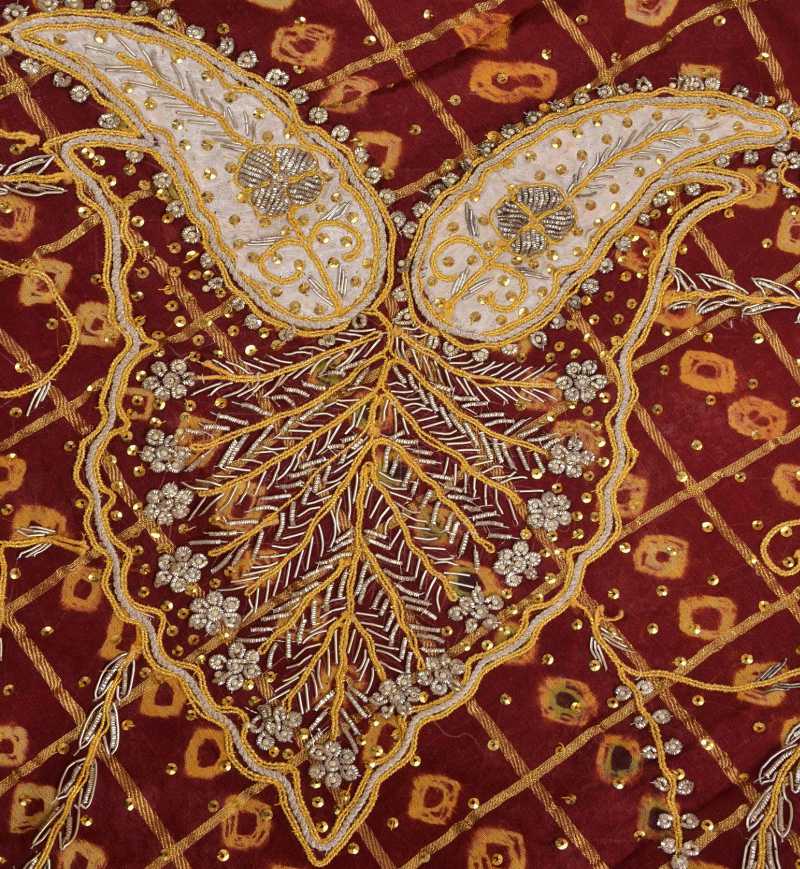===
0318,
3
===

=== |
 |
uṛnā : 'To fly, fly up, soar; to take flight; to move or go rapidly or quickly, to go flying along; to disappear, vanish'. (Platts p.43)
chalnā : 'To move, stir; to go, proceed; to depart; to walk, travel; to flow, run (as a stream, a pen, &c.); ... to set out, to start; to begin'. (Platts p.439)
FWP:
SETS
MOTIFS == SPRINGTIME
NAMES
TERMS == MOODFor an explanation of the 'collar', which is of course the vertical neck-opening of a kurta, see G{17,9}.
The wide range of chalnā , 'to move along', opens out into both 'to depart' and 'to begin' see the definition above). I had been reading it entirely in the former sense, so it was a surprise to see that SRF reads it entirely in the latter sense. I had been thinking of the drops of vivid color as (like) birds, who 'flying, move along' during their autumnal migration, thus forming one of the characteristic signs of the winter to come. SRF prefers the sense of 'fading', no doubt because blood-drops aren't really very much like birds (and the verse doesn't really treat them as such). As for the chalnā itself, I can't find any reason, either grammatical or semantic, that it can't be read as either 'to move along' or 'to begin'.
Part of the 'mood' is surely the melancholy implication that the lover imagines the spring not as a time of fertility and flourishing and beauty, but only as a time when there was lots of fresh blood on his collar. But of course, in the lover's own judgment that time may indeed have been one of fertility and flourishing and beauty-- because it so well expressed his passion, and/or because of his hopeless madness, and/or because, mystically speaking, he might be absolutely right.